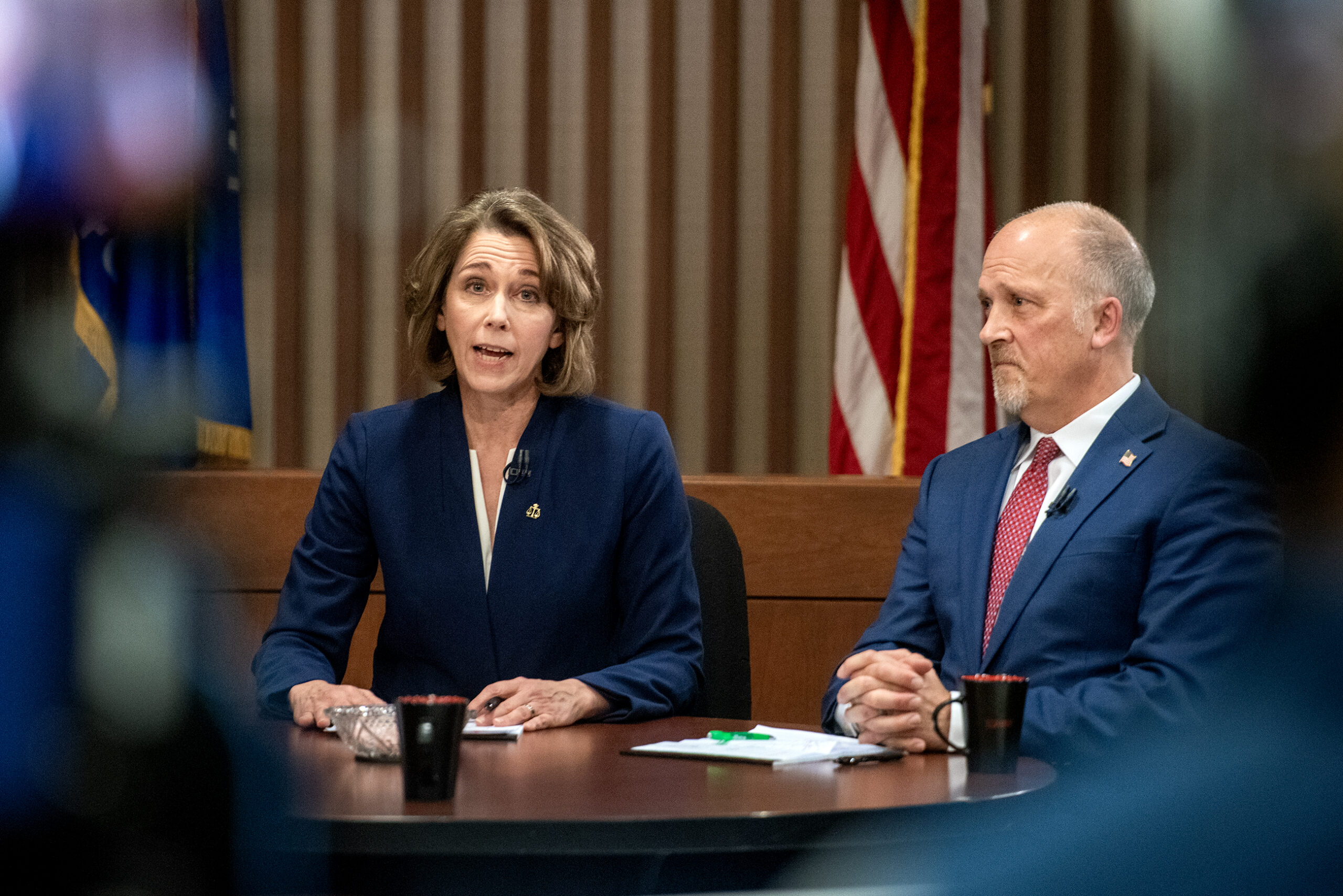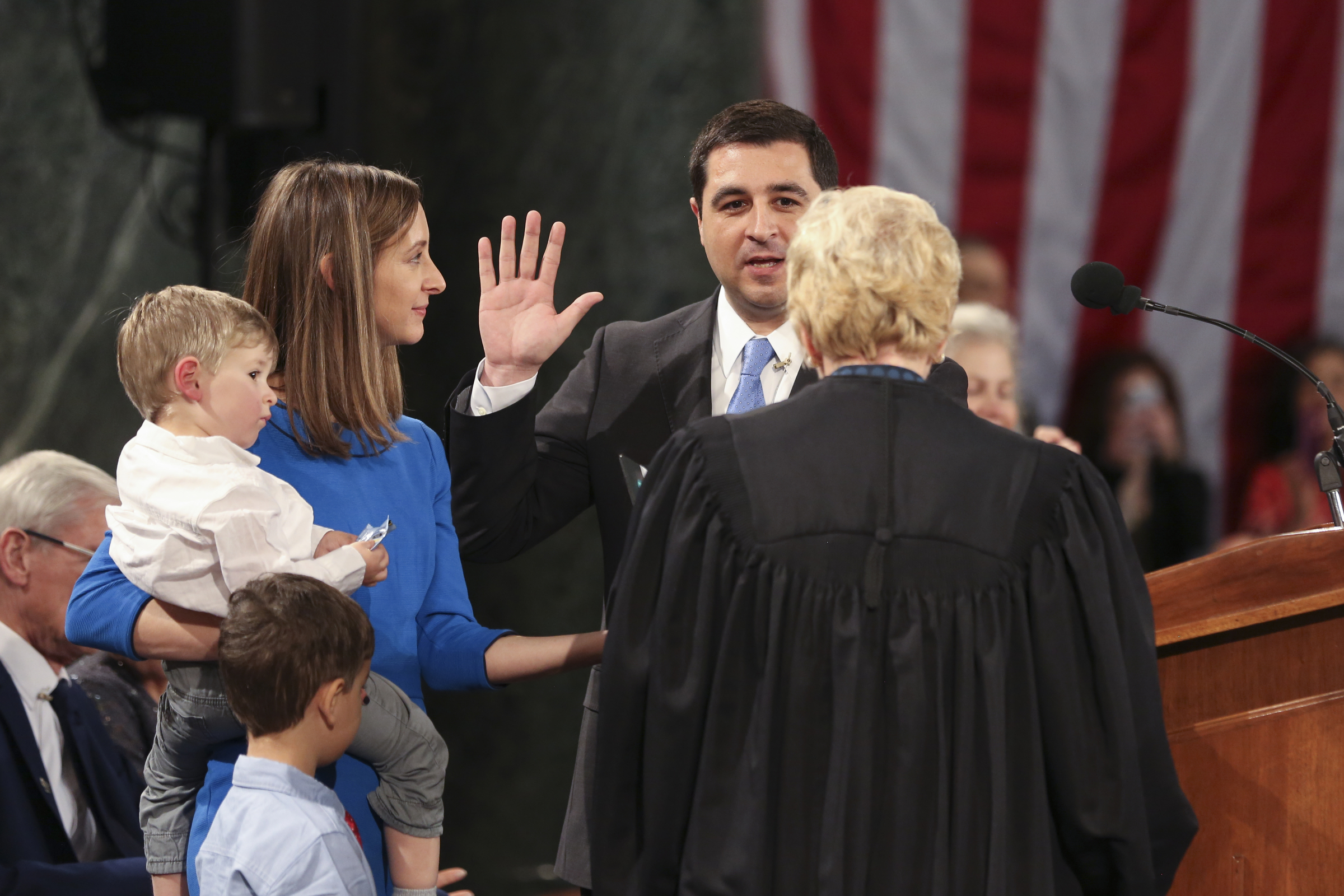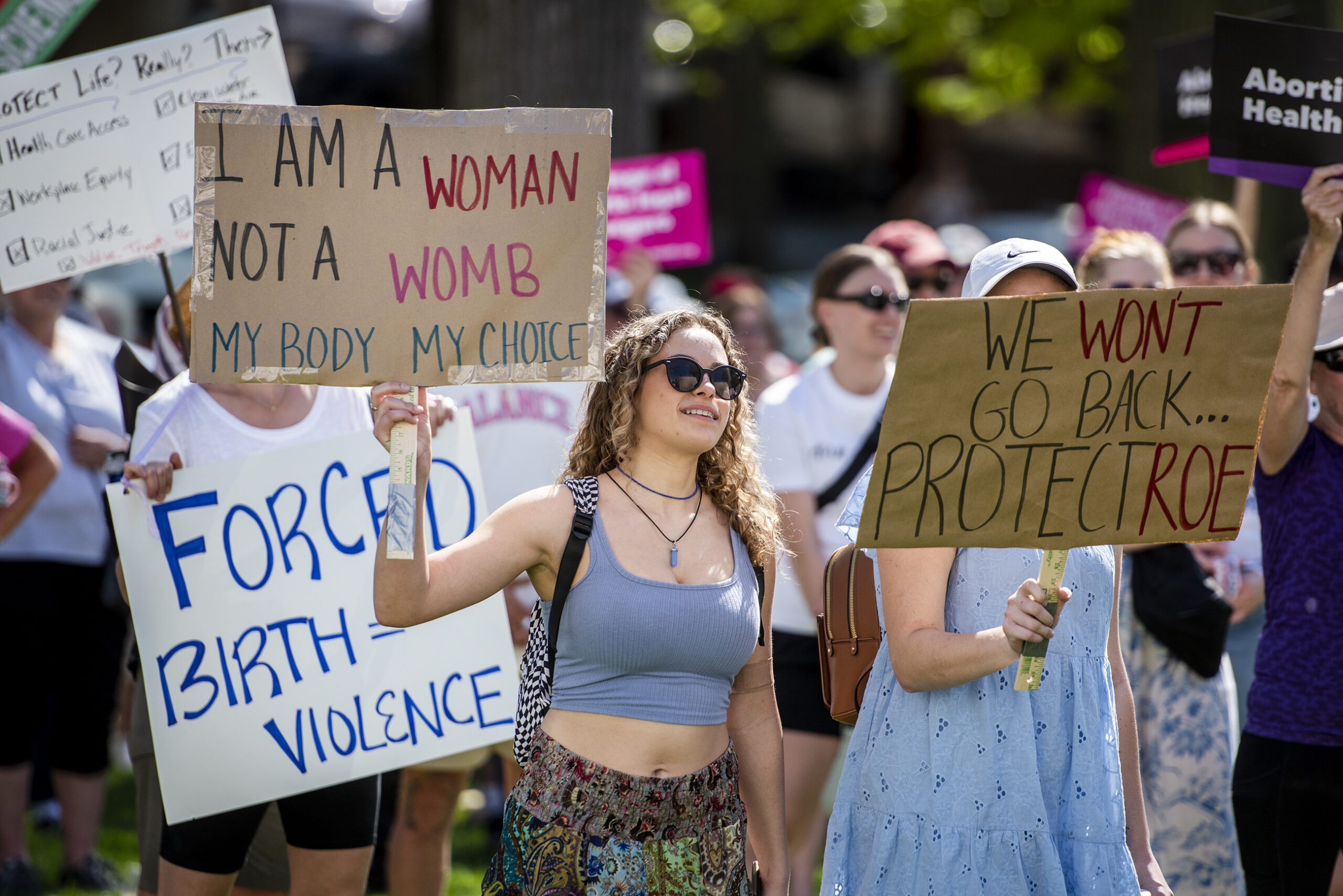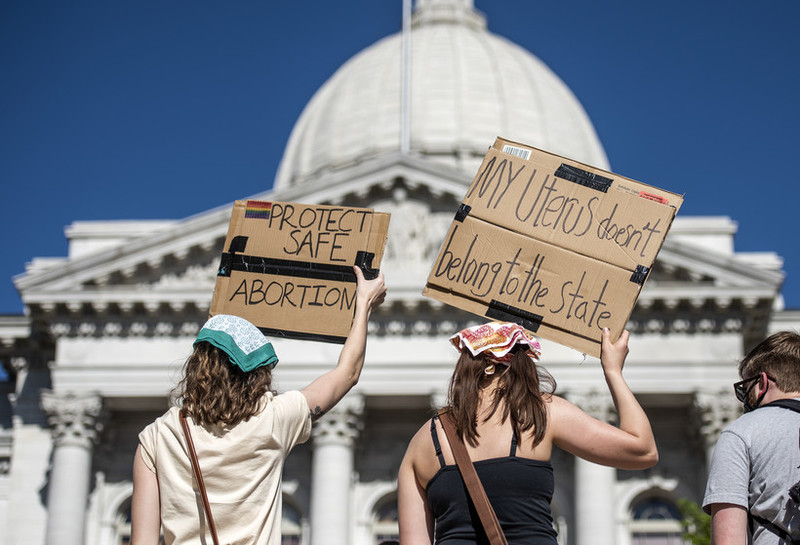Planned Parenthood of Wisconsin will ask the Wisconsin Supreme Court to consider whether the state’s constitution protects a person’s right to abortion.
The organization announced it is filing a petition with the court during a press conference on Thursday.
Michelle Velasquez, chief strategy officer for Planned Parenthood of Wisconsin, said the group’s legal argument centers around the first section of the state constitution, which says that all people have certain inherent rights including “life, liberty and the pursuit of happiness.”
Stay informed on the latest news
Sign up for WPR’s email newsletter.
“In these inherent rights are bodily autonomy and integrity and the right to self determination,” Velasquez said during a call with reporters. “Other states, other countries and the United Nations have all recognized these inherent rights. And we know that these rights cannot be realized if people do not have access to abortion and control over their own bodies.”
Velasquez said the organization is asking to bring the matter directly to the Wisconsin Supreme Court because the “urgent circumstances” directly impact the health of the state’s residents.
In addition to Planned Parenthood and two of its doctors, four Wisconsin residents identified as adult females of childbearing years are plaintiffs in the lawsuit. The individuals, identified by a first name and last initial, are described as having received an abortion for an unintended pregnancy between 2008 and 2016.
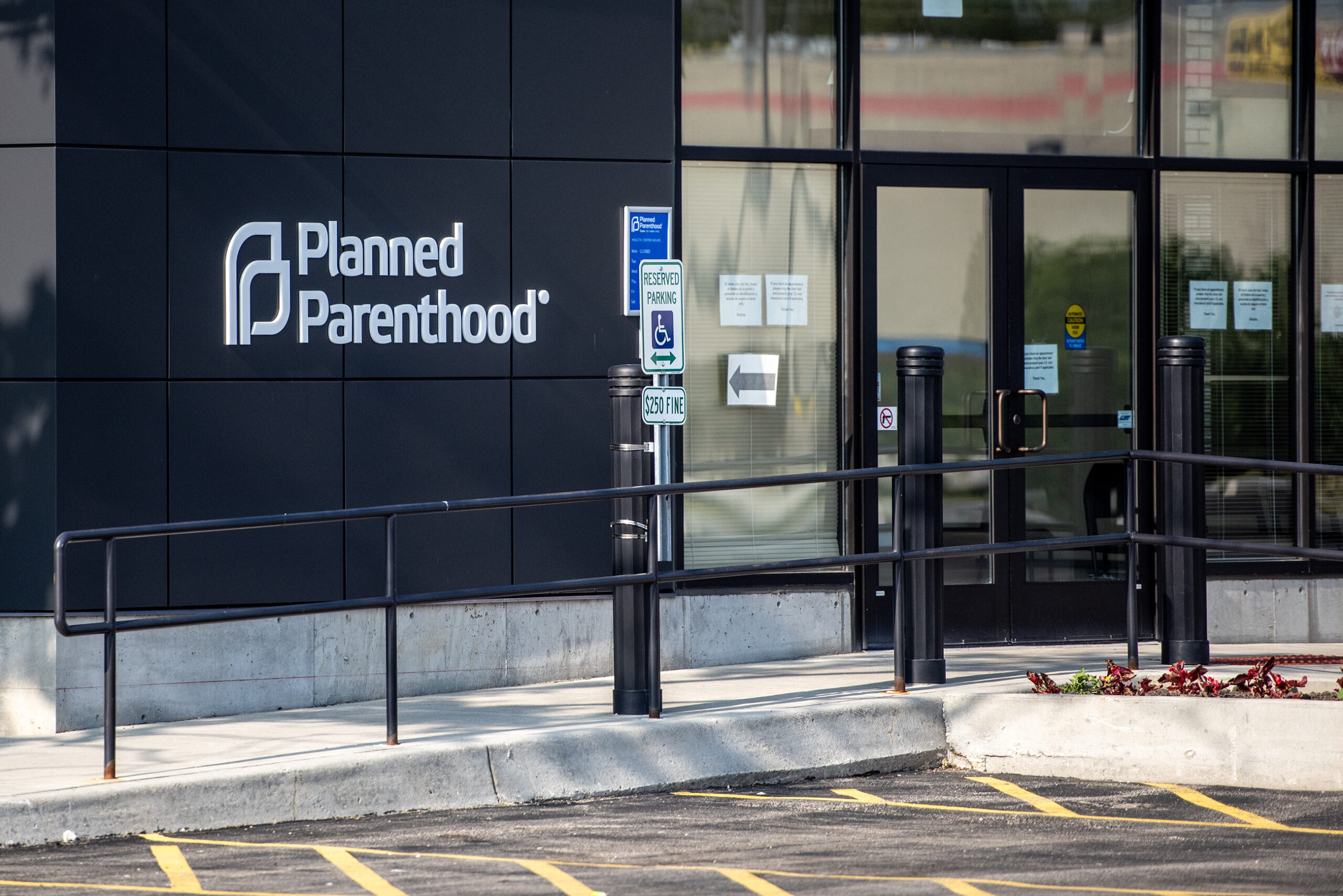
Planned Parenthood resumed abortion services at their clinics starting last September in response to another legal case brought by Wisconsin’s Democratic Attorney General Josh Kaul. In December, Dane County Circuit Court Judge Diane Schlipper ruled in that case that the 1849 law bans feticide rather than abortions done with a pregnant person’s consent.
Sheboygan County District Attorney Joel Urmanski, a Republican, said he would appeal the December ruling. On Tuesday, he filed a petition with the state Supreme Court asking justices to take the case without waiting for a decision from a lower state appeals court.
Velasquez said Planned Parenthood agrees with Urmanski’s request to bring the case directly before the high court to avoid delays. But she said her organization’s new petition is a separate legal argument from Kaul’s case, which asks the court to interpret the state statute.
“What Planned Parenthood Wisconsin is asking the (state) Supreme Court to consider, either before or contemporaneous to the questions in that case, is whether a statute like 940.04 could even stand,” Velasquez said. “Does the Wisconsin constitution allow the Legislature to enact laws that completely restrict or prohibit abortion care?”
She said the state’s highest court needs to provide “guardrails” for state lawmakers as they consider new laws related to abortion, like a bill introduced in January that would ban abortions after 14 weeks.
Velasquez said Planned Parenthood Wisconsin is not asking the court to rule on the constitutionality of the state’s existing abortion restrictions, saying challenges to those laws could come later if their case is successful.
Miriam Seifter, professor at the University of Wisconsin-Madison’s School of Law, said similar cases have been brought before state supreme courts across the country since the U.S. Supreme Court ended federal abortion protections in their 2022 decision in Dobbs v. Jackson Women’s Health Organization.
“At least a dozen state high courts have expressly held that these types of provisions protect abortion, at least to some extent,” Seifter said. “There are a number of others that have reached those types of rulings at the lower court level, but haven’t fully resolved them in the high courts yet.”
Seifter said the argument that a state abortion ban violates the equality and liberty of pregnant people and doctors is a different issue that was decided under the 1973 Roe v. Wade decision and the subsequent Dobbs decision.
She said it’s up to the justices whether they want to hear either the constitutional case or the appeal brought by Urmanski, or both. But she said Planned Parenthood does make an argument for hearing its new case first.
“The petitioners argue that the statute’s meaning has to be informed by the constitution, and that the constitutional issue is going to keep coming up so (the court) should decide it now,” Seifter said. “But it’s also conceivable that they could decide, ‘Well, let’s first figure out what the statute means and then decide if we need to figure out the constitutional question.’”
She said both sides of the two cases agree that settling the questions around access to abortion in the state are of public importance and should be settled quickly, which could motivate the state’s high court to act in one or both of the cases in coming weeks.
Matt Sande, legislative director at Pro-Life Wisconsin, said his organization is watching the case.
“Pro-Life Wisconsin has grave concerns that the Wisconsin Supreme Court will find a ‘right’ to abortion in our state constitution, thus overturning not only our current abortion ban, (state statute) 940.04, but all Wisconsin’s pro-life prohibitions and regulations enacted over the last forty years,” Sande said in an email.
Sande said his organization has promoted amending the state’s constitution to extend equal rights to unborn children.
Wisconsin Public Radio, © Copyright 2025, Board of Regents of the University of Wisconsin System and Wisconsin Educational Communications Board.

